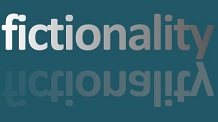Fictionality Forum 4

Friday 6 February 2015, 5.00PM to 6pm
Speaker(s): Michele Campopiano
For this term's Fictionality Forum, Michele Campopiano will give a short talk on "Historical narratives between art and philosophy: a turning point in Croce's theory," followed by discussion. The material circulated in advance will not be a full text but supporting material, including the selection of translated passages.
The Fictionality Forum is an occasional opportunity for those of us with research interests relating to fictionality to get better acquainted with each other's work. It is a Fictionality Group initiative, and reflects the group's shared interests in fictionality and cultural specificity; the group cuts across the four research schools, and participation is open to all research students and staff.
Location: BS/007
Admission: The Fictionality forum is open to members of the Fictionality group and all staff. Contact Richard Walsh for a copy of the advance reading.
Email: richard.walsh@york.ac.uk
Fictionality Forum 3

Monday 24 November 2014, 6.00PM to 7pm
Speaker(s): Henry Bainton
The Fictionality Forum is an occasional opportunity for those of us with research interests relating to fictionality to get better acquainted with each other's work. It is a Fictionality Group initiative, and reflects the group's shared interests in fictionality and cultural specificity; the group cuts across the four research schools, and participation is open to all research students and staff.
Forum meetings typically involve one or two of us briefly introducing a piece of our own recent work, which will have been circulated in advance, followed by open discussion. The introductions serve mainly to explain how we think the work relates to the group's common interests (though we also prime the group for what to look for when we first distribute the material). The meetings last about an hour, and are held towards the end of the day, with wine, in order to cultivate a relaxed atmosphere.
On this occasion the reading is Henry Bainton's essay, "History, Documents, Fiction," which provides our first opportunity to discuss the question of fictionality in a medieval context. The essay will be distributed in advance to all those expressing an interest (via email to Richard Walsh), along with a brief contextualizing headnote from Henry.
There will be a group going out for a meal afterwards; if you'd like to dine, please say so when you request the readings.
Location: King's Manor, K/G33
Admission: Contact Richard Walsh
Email: richard.walsh@york.ac.uk
Fictionality Forum 2

Wednesday 30 April 2014, 5.00PM to 6.30pm
Speaker(s): Ziad Elmarsafy and Jurate Levina
The Fictionality Forum is an occasional opportunity for those of us with research interests relating to fictionality to get better acquainted with each other's work. It is a Fictionality Group initiative, and reflects the group's shared interests in fictionality and cultural specificity; the group cuts across the four research schools, and participation is open to all research students and staff.
Forum meetings typically involve two of us briefly introducing a piece of our own recent work, which will have been circulated in advance, followed by open discussion. The introductions serve mainly to explain how we think the work relates to the group's common interests (though we also prime the group for what to look for when we first distribute the material). The meetings last about an hour, and are held towards the end of the day, with wine, in order to cultivate a relaxed atmosphere.
On this occasion the readings are the introduction to Ziad's Sufism in the Contemporary Arabic Novel, and Jurate's conference paper, "Phenomenology of Fiction as Aesthetic Truth in James Joyce’s ‘Epiphanies.’" The authors have each provided a brief headnote, included with the readings. Jurate has also provided an additional, optional text as explained in her headnote; the set reading, though, is just the "Epiphanies" document.
The readings will be distributed to everyone expressing an interest via email to Richard Walsh.
As an additional attraction for this occasion, Ziad is offering a half-hour introductory Arabic lesson to all those interested, immediately after the forum.
Location: Berrick Saul Building, B/S/007
Admission: Contact Richard Walsh
Email: richard.walsh@york.ac.uk
Fictionality Forum 1

Wednesday 29 January 2014, 4.30PM to 5.30pm
Speaker(s): Richard Walsh and Adam Kelly
The Fictionality Forum is an occasional opportunity for those of us with research interests relating to fictionality to get better acquainted with each other's work. It is a Fictionality Group initiative, and reflects the group's shared interests in fictionality and cultural specificity; the group cuts across the four research schools, and participation is open to all research students and staff.
Forum meetings typically involve two of us briefly introducing a piece of our own recent work, which will have been circulated in advance, followed by open discussion. The introductions serve mainly to explain how we think the work relates to the group's common interests (though we also prime the group for what to look for when we first distribute the material). The meetings last about an hour, and are held towards the end of the day, with wine, in order to cultivate a relaxed atmosphere.
For this first Fictionality Forum Adam Kelly has volunteered a current conference paper, "Fiction in an Age of Artifice: Jennifer Egan’s New Sincerity," which is to become the third chapter of his second book, Twenty-First-Century American Fiction and the New Sincerity. The chapter will focus on Egan’s novels, but it will also be the section of the book that does the heavy lifting concerning the relationship between fictionality and sincerity, both historically and in the present day.
Location: BS/007
Admission: The Fictionality forum is open to members of the Fictionality group and all staff
Email: richard.walsh@york.ac.uk
